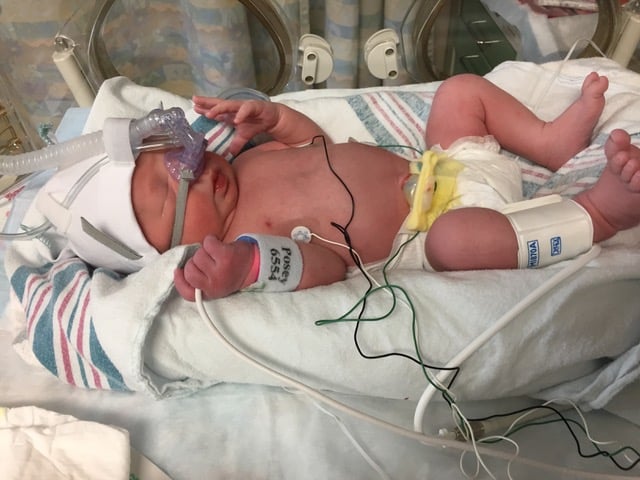American Heart Association© NRP Certification Classes in Fresno

American Academy of Pediatrics© NRP
Course Name: NRP (Neonatal Resuscitation Program)
Online Course Length: 3 hours (At your home.)
Skills Testing: 3 hours (At one of our sites: San Francisco, Concord, or Milpitas.)
Price: $280 (This includes the online NRP class, skills testing, and NRP card.)
Certification: American Academy of Pediatrics© NRP certification card.
When: NRP Courses are offered about 16 times per month
Where: Courses are offered in San Francisco, Concord, and Milpitas
Card Issuance: You will receive the card on day of class.
Upcoming NRP Classes in the Bay Area
Enhancing Newborn Care: NRP Classes in Fresno
Fresno, a vibrant city nestled in California’s fertile Central Valley, is not only known for its agricultural richness but also for its commitment to community health and wellness. Integral to this commitment is the focus on the youngest and most vulnerable population—newborns. Neonatal Resuscitation Program (NRP) classes in Fresno play a critical role in preparing healthcare professionals to deliver life-saving care to newborns who experience difficulties at birth. This article explores the importance of NRP classes in Fresno, their impact on healthcare providers, and the vital skills they impart for improving newborn survival rates.
The Importance of NRP Training
Neonatal resuscitation skills are essential for healthcare providers who are present at the time of delivery. Newborns, particularly those who are preterm or have congenital issues, may face critical challenges such as breathing problems, heart issues, and other life-threatening conditions immediately after birth. NRP training equips nurses, physicians, midwives, and respiratory therapists with the knowledge and skills to respond effectively to these emergencies, ensuring that they can provide immediate and effective care to help newborns overcome initial life hurdles.
NRP Classes in Fresno
Fresno offers NRP classes to a wide range of healthcare professionals involved in the delivery and care of newborns. These classes are designed according to the standards and guidelines provided by the American Academy of Pediatrics and the American Heart Association, ensuring that all training is based on the latest scientific research and clinical practice guidelines.
Course Components and Structure
NRP courses in Fresno typically cover a comprehensive curriculum that includes:
- Principles of Newborn Resuscitation: Understanding the physiological differences in newborns and the basics of neonatal resuscitation.
- Initial Steps in Newborn Care: Assessing a newborn’s breathing, heartbeat, and color to determine the need for further resuscitation.
- Use of Resuscitation Devices for Ventilation: Hands-on training in using devices that aid newborn breathing.
- Chest Compressions: When and how to effectively perform chest compressions on newborns.
- Medications in Resuscitation: Understanding the types of medications used during neonatal resuscitation.
- Special Considerations: Managing resuscitation in preterm infants, ethical considerations, and scenarios involving congenital anomalies.
- Post-resuscitation Care: Providing care to stabilize newborns following resuscitation.
These classes combine theoretical knowledge with practical skills training, using state-of-the-art simulation technology to create realistic scenarios where healthcare providers can practice and hone their skills.
Hands-On Simulation Training
A crucial component of NRP training in Fresno is the simulation-based learning approach. This hands-on experience allows healthcare providers to engage in realistic delivery room scenarios, applying their knowledge in a controlled, yet dynamic environment. Simulation exercises include managing a newborn’s airway, practicing effective ventilation techniques, and coordinating care with a healthcare team. This practical training is vital for building confidence and ensuring that providers can perform under pressure during real-life neonatal emergencies.
Impact on Newborn Care in Fresno
The availability of NRP-trained professionals in Fresno significantly enhances the quality of care provided to newborns at the critical time of birth. Hospitals and birthing centers equipped with NRP-certified staff see improved survival rates and better health outcomes for newborns. The training also instills a greater sense of confidence and preparedness among healthcare providers, fostering a safer and more supportive environment for both the newborns and their families.
Conclusion
NRP classes in Fresno are more than just training sessions; they are a crucial element in the city’s healthcare infrastructure, directly contributing to the survival and well-being of newborns. By providing healthcare professionals with the skills and knowledge to perform neonatal resuscitation effectively, these classes help ensure that every newborn in Fresno has the best possible start in life. As the city continues to grow and evolve, the ongoing provision of NRP training will remain a key factor in safeguarding the health of its youngest citizens, reinforcing Fresno’s commitment to comprehensive and compassionate healthcare.
FAQs
Who should attend NRP certification classes in Fresno?
NRP certification classes are primarily designed for healthcare professionals involved in the care of newborn infants, including neonatologists, pediatricians, obstetricians, nurses, midwives, and respiratory therapists.
How long does an NRP certification course typically last?
NRP certification courses usually span over one to two days, depending on the training provider. The course includes a combination of didactic instruction, skills practice, and simulated scenarios to ensure comprehensive learning and skill mastery.
Is there a renewal requirement for NRP certification?
Yes, NRP certification is typically valid for two years, after which healthcare professionals are required to undergo NRP renewal courses to maintain their certification. Renewal courses often include updates on guidelines and hands-on skills practice.
